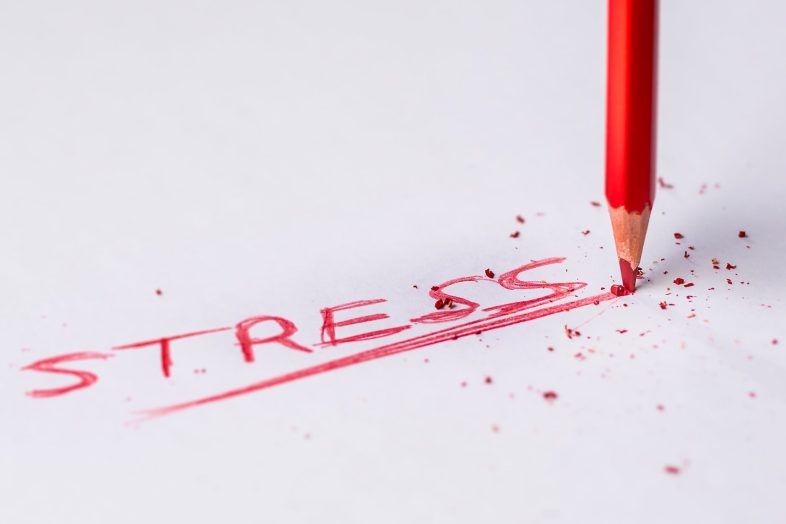Stress is a normal part of life, but when it becomes chronic, it can take a toll on our physical and emotional health. It’s important to find ways to manage stress in order to improve your overall well-being. Today, we will explore 10 proven stress management techniques that can help you find peace and calm in your life.
Exercise
Exercise is one of the most effective stress management techniques. When we exercise, our bodies release endorphins, which are natural mood boosters. Regular exercise can also help reduce symptoms of anxiety and depression, which can be caused by chronic stress.
There are many different types of exercises that can help with stress relief, including:
- Aerobic exercise, such as running, cycling, or swimming
- Strength training, such as weightlifting or body weight exercises
- Yoga and Pilates, which combine physical movement with mindfulness and deep breathing
- Outdoor activities, such as hiking, gardening, or walking
The key is to find an exercise that you enjoy and that you can stick with. Aim to get at least 30 minutes of moderate-intensity exercise, such as brisk walking, most days of the week. Obviously, the more often the better.
Mindfulness Meditation
Mindfulness meditation is a form of meditation that involves focusing your attention on the present moment. This can help you calm your mind, reduce anxiety, and improve your overall well-being by grounding your mind in the present.
Here is a quick way you can get started with mindfulness meditation:
- Find a quiet, comfortable place to sit or lie down
- Close your eyes and focus on your breath
- Don’t worry if your mind starts to wander, just gently bring your attention back to your breath
- Continue for 10-15 minutes, or longer if you have time
You can practice mindfulness meditation anywhere, at any time. It’s a great way to take a break from your busy day and find a moment of peace and calm.
Deep Breathing
Deep breathing is another simple and effective stress management technique. When we’re stressed, our breathing can become shallow and rapid, which can make our stress levels even higher. By taking slow, deep breaths, we can calm our bodies and minds.
Here’s a simple deep breathing exercise that you can try:
- Find a quiet place to sit or lie down
- Place one hand on your chest and the other on your belly
- Take a slow, deep breath in through your nose, filling your belly first and then your chest
- Hold your breath for a count of three
- Exhale slowly through your mouth, letting go of any tension or stress
- Repeat for several minutes, or until you feel calm and relaxed
Deep breathing can be done anywhere, at any time. It’s a great way to quickly reduce stress and improve your mood.
Time Management
Stress can often be caused by feeling overwhelmed and having too much to do. By managing your time more effectively, you can reduce your stress levels and feel more in control of your life.
Here are some tips for better time management:
- Make a to-do list each day, and prioritize your tasks. It helps to know what you have in store for the day ahead
- Set realistic deadlines for each task, and stick to them
- Take regular breaks to avoid burnout
- Delegate tasks to others, if possible
- Say no to additional commitments, if necessary
- Set aside time each day for self-care, such as exercise or meditation
By taking control of your time, you can reduce your stress levels and feel more in control of your life. Obviously things will come up during your day that will shuffle things, but by knowing what you have on your plate you will be able to more easily adapt.
Getting Enough Sleep
Sleep is essential for good health, and it can also help reduce stress. When we’re sleep-deprived, our bodies and minds are more vulnerable to stress. On the other hand, getting enough sleep can help improve our mood, boost our energy levels, and enhance our ability to handle stress.
Here are some tips for improving your sleep quality:
- Stick to a consistent sleep schedule, even on weekends
- Create a relaxing bedtime routine, such as reading or taking a warm bath
- Avoid screens (such as phones, computers, and televisions) for at least an hour before bedtime
- Keep your bedroom cool, quiet, and dark
- Avoid caffeine, nicotine, and alcohol in the hours leading up to bedtime
- Practice relaxation techniques, such as deep breathing or meditation, before bedtime
Aim to get 7-9 hours of sleep each night to help reduce stress and improve your overall health.
Connecting with Others
Social support is essential for good mental health, and it can also help reduce stress. Feeling alone and isolated increases your stress levels. Whereas, when we connect with others, we feel less isolated and more connected to the world around us.
Here are some ways to connect with others for stress relief:
- Spend time with friends and family
- Join a support group or community organization
- Volunteer your time to help others. Connect with people online through social media or forums
- Seek out a therapist or counselor for support
By building strong social connections, you can reduce stress and improve your overall well-being. Just having that connection to a community is very calming.
Healthy Eating
What we eat can have a significant impact on our stress levels. A diet high in processed foods, sugar, and caffeine can increase stress by making our bodies work too hard, while a diet rich in whole foods, such as fruits, vegetables, and whole grains, can help reduce stress.
Here are some tips for eating a healthy, stress-reducing diet:
- Eat a variety of nutrient-dense foods, such as fruits, vegetables, whole grains, and lean proteins
- Limit your intake of processed foods, sugar, and caffeine
- Stay hydrated by drinking plenty of water. Try for 8 glasses a day, even if you just slowing increase your water intake a little each day can be helpful
- Avoid skipping meals, as this can increase stress levels. Consider taking a daily multivitamin to ensure you’re getting all the nutrients you need
By eating a healthy diet, you can reduce stress and improve your overall health.
Positive Self-Talk
Our thoughts and beliefs can have a significant impact on our stress levels. By constantly thinking thing in the negative our brains start believe those things to be true, same goes for positive thoughts. By practicing positive self-talk, we can counteract negative thoughts and reduce stress.
Here’s how you can incorporate positive self-talk into your stress management routine:
- Identify negative thoughts and beliefs that contribute to stress
- Challenge these thoughts by asking yourself if they are really true
- Replace negative thoughts with positive affirmations, such as “I am capable and strong” or “I can handle this situation”
- Repeat positive affirmations to yourself throughout the day
- Surround yourself with positive messages and reminders, such as inspirational quotes or affirmations
Positive self-talk can help you reduce stress and improve your overall well-being. The more you practice thinking in the positive the easier it will become. Plus the added bonus is that you will start feeling better
Relaxation Techniques
Relaxation techniques, such as progressive muscle relaxation, guided imagery, and aromatherapy, can help reduce stress and improve relaxation.
Here are some examples of relaxation techniques:
Progressive muscle relaxation: This involves tensing and then relaxing different muscle groups in your body, starting with your feet and working your way up to your head
Guided imagery: This involves using your imagination to create a peaceful and calming scene in your mind
Aromatherapy: This involves using essential oils, such as lavender or chamomile, to promote relaxation and reduce stress
Relaxation techniques can be done anywhere, at any time. Incorporate them into your daily routine to help reduce stress and improve your overall well-being.
Hobbies and Interests
Engaging in hobbies and interests that we enjoy can help reduce stress and improve our mood. Whether it’s painting, gardening, or playing a musical instrument, hobbies give us a chance to focus on something enjoyable and take our minds off of our stressors.
Here’s how you can incorporate hobbies into your stress management routine:
- Take time each day to pursue a hobby or interest that you enjoy
- Find a hobby that you can do alone or with others
- Consider taking a class or joining a group to meet others who share your interests
- Make time for your hobby, even if it’s just for a few minutes each day
Engaging in hobbies and interests allows your mind to relax, thereby reducing stress and improving your overall well-being.
Seeking Professional Help
If stress is interfering with your daily life and you’re unable to manage it on your own, consider seeking professional help. There are many types of professionals who can help with stress management, including:
- Therapists or counselors
- Doctors or nurse practitioners
- Nutritionists or dietitians
- Alternative practitioners, such as acupuncturists or massage therapists
Don’t be afraid to seek help if you need it. With the right support, you can reduce stress and improve your overall well-being.
Stress is a normal part of life, but it’s important to find ways to manage it in order to improve your overall well-being. By incorporating the 10 proven stress management techniques outlined in this article, you can reduce stress and find peace and calm in your life. With patience, self-care, and support, you can improve your stress management skills and enjoy a happier, healthier life.
It is important to remember that stress management is a process, and it may take some time to find what works best for you. Don’t be discouraged if you don’t see immediate results, and don’t be afraid to try new things until you find what works for you.
Remember, it’s important to take care of yourself and prioritize self-care. This can include exercise, healthy eating, getting enough sleep, and engaging in activities that you enjoy. By taking care of yourself, you can improve your overall well-being and better handle stress when it arises.
Be sure to have a support system in place. This can include friends and family, support groups, or a even a therapist. Having someone to talk to and confide in can help reduce stress by reminding you that you are not alone, which will improve your overall well-being.
Take your time and take care of yourself. Remember that it’s okay to ask for help. Now go out there and enjoy life!


